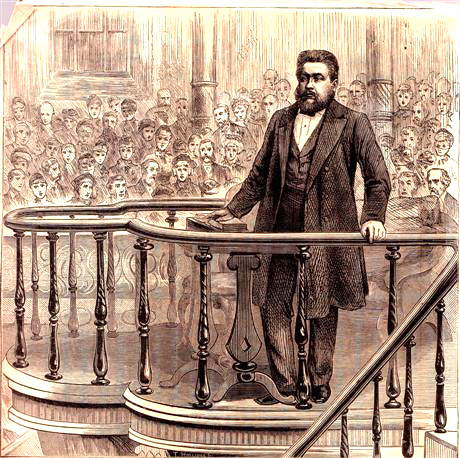The Early Years of Kington Baptist Church
The origins of Kington Baptist Church (KBC) date from 1805. At first believers met in the home of a gentleman by the name of Mr Scandrett. The historical record of the Church's constitution reads:
'This Church was regularly constituted the Lord's Day, September 1st, 1805. Brothers Evans and Kiplin met (with a number of families from England and Wales) at Brother Scandrett's house where the friends assembled. Suitable exhortations were given, and prayers offered to God upon the occasion. They then went down to the large room at the Bridge End, where they usually met for divine worship.'
The names of Kiplin and Scandrett seem to have disappeared from the Kington district many years ago. It is recorded that the first three baptisms were of William Scandrett, Richard Hebb, and William Bowen.
By 1810 there were 23 members and the Church was about to move to different meeting place.
'On Wednesday January 31st 1810 Brethren Kiplin, Evans and Jones etc. met at the same place to take their public farewell of the old room. Brother Evans began in prayer, Brother James preached from Colossians 1.13: "Who hath delivered us from the power of darkness, and hath translated us into the Kingdom of His dear Son", and Brother Kiplin concluded in prayer. Thursday morning assembled at the new chapel*. Brother Kiplin began by reading suitable portions of Scripture, and engaged in prayer, solemnly devoting the place to the worship and honour of the Great Eternal, Everlasting and Ever living Jehovah.'
*This building was located off High Street, and became the private house known as Arrowdale in 1934.
Following C. H Spurgeon's mission in Kington (see the article below), a new Baptist Church was constructed, the building we meet in today. The Trust Deed, dated 11th April 1868, states:
The building '…used occupied and enjoyed as a place of public religious worship according to the usages of the Society of Protestant Dissenters commonly called Particular or Calvinistic Baptists under the direction of the members or persons for the time being continuing or representing the Baptist Church now assembling for worship in the present Baptist Chapel…'
'A settled Pastor of the said church such person or persons of the Protestant Dissenters called Particular or Calvinistic Baptists as the members of the said church shall of two third part of them in number shall from time to time elect'
Admit to the Lord's Supper any person or persons professing faith etc.
Hence Kington Baptist Church is by Trust Deed a 'Particular or Calvinistic' Baptist Church and this is the doctrinal position we maintain to this day.
The Visit to Kington of C. H. Spurgeon 1861
Charles Haddon Spurgeon was born in 1834. Through the equipping grace of the Holy Spirit he was able to fulfil a ministry that was, in some respects, unique in the whole history of the Christian Church. This is no glory to the man but testimony to what God may accomplish through the faithful preaching of a person prepared, equipped and sustained by the Holy Spirit.
The details of Spurgeon's ministry are outlined in the biography by Arnold Dallimore and The Forgotten Spurgeon, by Iain Murray.

Spurgeon was not only the best-known preacher in London but perhaps the most widely known preacher in the world. He probably preached to a greater number of people than anyone in history before the arrival of radio. His congregations in his earlier years consistently numbered between 10,000 to 15,000; on occasions as many as 35,000. For 38 years Spurgeon was pastor of New Park Street Chapel, London. The chapel was rebuilt, as the Metropolitan Tabernacle, to accommodate 5,500 people.
In 1861 the Metropolitan Tabernacle was opened and in the same year the 27 year old Spurgeon visited Kington, for a three-week mission. His preaching left a deep impression on the town. Our present 300 seat building was completed in 1868, to accommodate the greatly enlarged congregation.
Spurgeon preached a Christ-centred gospel, grounded in the infallibility of the Bible and the sovereignty of God in salvation. Times have changed. Congregations are very much smaller and secularism dominates national life. But the gospel has not changed: the Christ-exalting gospel Spurgeon preached, the gospel the first Apostles preached, the gospel the Reformers and the Puritans preached, the gospel our building was erected to promote is the gospel we continue, with the Lord's help, to preach and defend.
